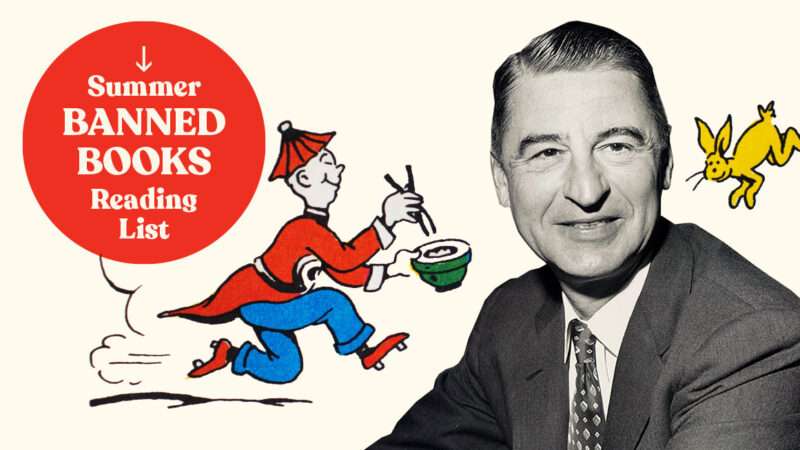
And to Think That I Saw It on Mulberry Street (1937) wasn't just the first book Theodor Geisel published as Dr. Seuss. It was among the six titles his literary estate ceased publishing and licensing last year because they "portray people in ways that are hurtful and wrong."
The volume is narrated by young Marco, whose father upbraids him for embroidering his humdrum life: "Stop telling such outlandish tales. Stop turning minnows into whales." But the boy can't help it, and, as he walks home from school, he pretends a "broken-down wagon that's drawn by a horse" is an increasingly fantastical procession, including an elephant driven by a "rajah" with a brass band in tow and, alas, "a Chinaman who eats with sticks." In a 1978 update, that last figure becomes "a Chinese man," his pigtail and ostentatiously yellow coloring removed.
Voluntarily ceasing to publish titles is not censorship, to be sure. No threat of government action prompted Dr. Seuss Enterprises' decision—just a grim consultation "with a panel of experts, including educators." But rather than rid the world of offensive books, the decision effectively ginned up interest in these obscure, forgotten works.
The Associated Press reported that in the week after the announcement that And to Think That I Saw It on Mulberry Street, If I Ran the Zoo, McElligot's Pool, On Beyond Zebra!, Scrambled Eggs Super!, and The Cat's Quizzer were being pulled, Dr. Seuss titles racked up 1.2 million in copies sold and accounted for "virtually every book in the top 20 on Amazon's bestseller list." Major public library systems removed the books, and online retailers such as eBay banned the selling of used copies, whose prices skyrocketed into the hundreds of dollars for items that had been collecting dust. According to The New York Times, only And to Think That I Saw It on Mulberry Street had sold enough copies in the years prior to scrape the lower reaches of BookScan's annual point-of-sale tallies.
Now, all the titles remain easy to find for sale online—on Amazon and elsewhere. First editions still command premium prices while foreign and revised editions are resold at prices comparable to other similar, used titles. All are available to view and download as PDFs at various free websites too.
At the close of And to Think That I Saw It on Mulberry Street, Marco's dad asks him what he saw on the way home from school. "Nothing," he replies, "growing red as a beet, but a plain horse and wagon on Mulberry Street." The whale is once again a minnow. We can all empathize.
The post Dr. Seuss' Books Gained Popularity After They Were Removed appeared first on Reason.com.







